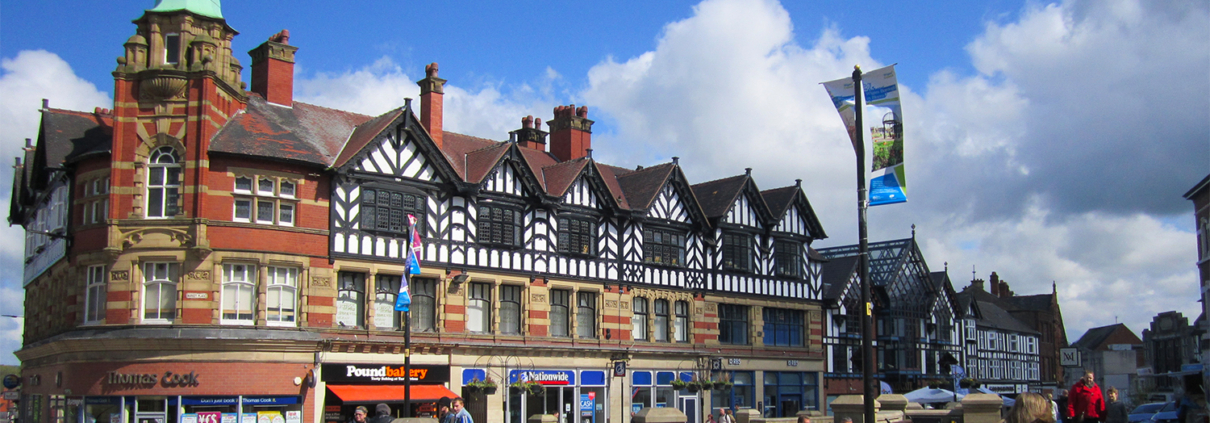System Change in Action: The Wigan Deal

Latest posts
Share:
We are often asked for stories and examples of when system change has happened. And examples can be hard to spot. But they are out there. And so we try and share them; those we have been involved in and those that have been the work of others.
We won’t all agree on what is or is not system change. That is because complex problems don’t have a fixed end state where the work is done. And so there is always more work to do.
It is also because complex problems are contested – there will be different views on what needs to change and what ‘better’ means and for whom. And complex problems are produced by systems that are (in some way) working, and so there will almost always be some form of loss for someone somewhere.
What makes something system change anyway?
So I use four rules of thumb to help judge if something feels like ‘system-y’ change:
- Is there more equity? (e.g. do the less powerful have more control of decisions and resources?).
- Has there been a shift in the mindset or paradigm that shapes this issue?
(e.g. have different assumptions about who are agents of change, who should control resources or what ‘better’ means driven this change?). - Is there some sort of ‘scale’? (e.g. can we reasonably expect that people or nature not directly involved in this intervention at this time will experience that change? – this ‘scale’ might be over space or time).
- Has something structural shifted? This too is part of scale. That something has shifted that will outlast the protagonists involved, that changes the conditions in which this complex issue blossoms (e.g. a change in national or organisational policy, a permanent shift in the locus of control of resources, etc).
Welcome to Wigan
Wigan, a former mill town in the North West of England, is often over shadowed by its bigger more famous neighbours – the city of Manchester to the East and Liverpool to the West. But in this story it gets to take centre stage. For, since 2011, Wigan Council and its partners have been working to change the very relationship between the Council and the people that live and work there. Known as The Wigan Deal, this a story that challenges the dynamic that ‘the state knows best and will fix everything’ and that citizens are passive recipients.
What happened?
In 2011 Wigan Council, like many in the UK, found themselves facing significant financial pressures. The wider political climate of ‘austerity‘ (a package of policies that limited public sector funding) meant no more money from central government. And so the Council decided it needed to find a new way to relate to and work with citizens in order to deliver services. It was time to try something radically different.
The provision of public services is complex. Traditionally in the UK, there is a fairly paternalistic relationship between the state and citizens. In practice, this means the state controls the money and gets to decide what sorts of services are needed and citizens, while they may lobby and campaign for certain things, are not decision-makers or seen as creators of solutions.
A non-paternalistic model would require that the role of communities be taken seriously with a genuine commitment to collaboration and co-creation of solutions.
Wigan Council decided that if they were going to create a better town and do so with shrinking budgets, then they had to change this underlying paternalistic dynamic. They had to truly and deeply work in partnership, sharing power with local communities.
And so, together the council, citizens, community groups and businesses of Wigan created a series of ‘pledges’, covering everything from creating a ‘vibrant town’ to ‘care for adults with disabilities’. These pledges committed everyone to play their part – they required specific commitments from the council but also from businesses and from residents.
For example, under the ‘Vibrant Town Centre’ pledge the council committed to providing free city centre parking and residents committed to using it to visit local shops, businesses and leisure facilities rather than using it to travel out of town. Pledges were formed across a host of different areas and together they formed ‘The Wigan Deal.’
In 2019, ‘The Kings Fund’ – an independent health think tank did an evaluation asking ‘Is the Deal Real?‘ They concluded there had been a ‘genuine transformation’. The scale and consistency with which ideas have been applied significantly trumped other attempts, illustrating ‘the kind of work that is needed to shift to a new model of public service delivery’.
How did system change happen?
As system change practitioners, The Wigan Deal is intriguing. We have evidence of transformational change in a complex system driven through collaboration across institutional boundaries. And whilst the Kings Fund pointed to ‘bold leadership’ and ‘a long-term strategic commitment to working differently with local people and communities’ we want to go a bit further and unpick the approach through a systems lens. Does the approach differ from the linear approaches that we know complex systems resist?
Work to wire the system together
At the outset, there was a recognition that no single institution could tackle this alone. Change was going to require a shift in mindset. It was going to require disparate parties to come together, build relationships, build understanding, share ambitions, share challenges and commit resources for doing work together.
This ‘wiring of the system together’ is fundamentally important in system change – and – goes beyond just bringing people together. It requires the patient work to really get to know and understand different agendas and perspectives. It requires the willingness to share resources and power.
The “Be Wigan Experience” attended by people from different parts of the system was one tool which helped build collaboration and shift mindsets regarding how residents, citizens and others viewed each other. And it took time.
Donna Hall (former CEO of Wigan Borough Council) described how everyone danced around each other for 2 years before getting on with the real work. But through that dancing the ambition for the work was reframed as “it doesn’t belong to any one of us – it belongs between us”.
Get practical
“The Deal” – the pledges between the council, citizens, community groups and businesses to create a better borough – represents a shared, but big and abstract ambition. In system change work we also have to work on concrete goals to create a focus that mobilises resources and pulls you towards the big ambition.
Below the headline Deal are “deals” for adult social care, “your street”, communities, children and young people, health and wellbeing and businesses. There are co-created pledges in specific contexts such as housing in which the provision of council homes for people with disabilities was supported by private landlords willing to let their properties through the council.
This is a tangible, measurable goal that moves towards the bigger, more abstract, ambition.
No single story
Another aspect of the approach that speaks to systems change is the diversity of storytelling. For example, “Rekindling hope: the story of the Wigan Deal” is told by young people, NHS, community groups, council employees, and businesses.
It is not the Council, ‘the state’, telling one story. It is different parts of the system expressing what matters to them.
In systems change, there is no single story and the Kings Fund research highlighted this. Focus groups found that people’s concerns about issues such as crime and antisocial behaviour were overshadowing incredible progress being made in social care and public health.
Build on what's working
Social care is providing help with day-to-day living because of illness or disability. And it is one of the fastest-growing areas of need and cost in the UK.
People’s social care needs vary significantly depending on their circumstances so providing services that meet needs is highly complex and not well suited to a centralised, paternalistic, one-size-fits-all approach to public service delivery.
Because The Wigan Deal was a collaborative effort it had access to an incredible body of collective intelligence, both about people’s needs and also about the varied way these needs could and were being met.
One of the central successes of the Deal was the closure of expensive Council-run day care centres – predicated on a mindset of ‘come to us, use our services’. Instead, investment was channelled into a network of existing community organisations and neighbourhood groups already connected to people with care needs in their community and better able to understand and provide tailored and localised support to those who needed it.
In system change, this is an example of investing in and building collective and adaptive capacity. Day Care Centres focused on ‘the problem’ (e.g. an isolated elderly person) – a very expensive endeavour. Investing in community organisations focused instead on creating the conditions in which the existing organisations who know and represent local people were better able to thrive and adapt to local needs.
Demand was stripped out of the Council’s social care system and there was an improvement in health and wellbeing metrics.
What next?
What makes the Wigan Deal distinctive and an example of system change in action is the focus on building collective and adaptive capacity. The work of ‘wiring the system together’ better has been fundamental in the co-creation of solutions.
It successfully drew on what already existed in the spaces between different stakeholders, addressing unmet needs in a highly resource-constrained context. The Wigan Deal mobilised resources across organisational boundaries, changed the narrative and amplified the visibility of under-utilised strengths, delivering change at scale.
The Wigan Deal is by no means a panacea and it is now four years on from the Kings Fund analysis during which the Pandemic and UK Cost of Living Crisis has hit. Undoubtedly Wigan was better able to adapt to those shocks having adopted aspects of a systems-based approach.
We hope the people of Wigan have managed to hold their nerve and not relapse, under significant pressure, to a fallacy that the Council can solve these challenges on its own.
Share:
Lorem ipsum dolor sit amet, consectetur adipiscing elit. Ut elit tellus, luctus nec ullamcorper mattis, pulvinar dapibus leo.







 Wasafiri
Wasafiri